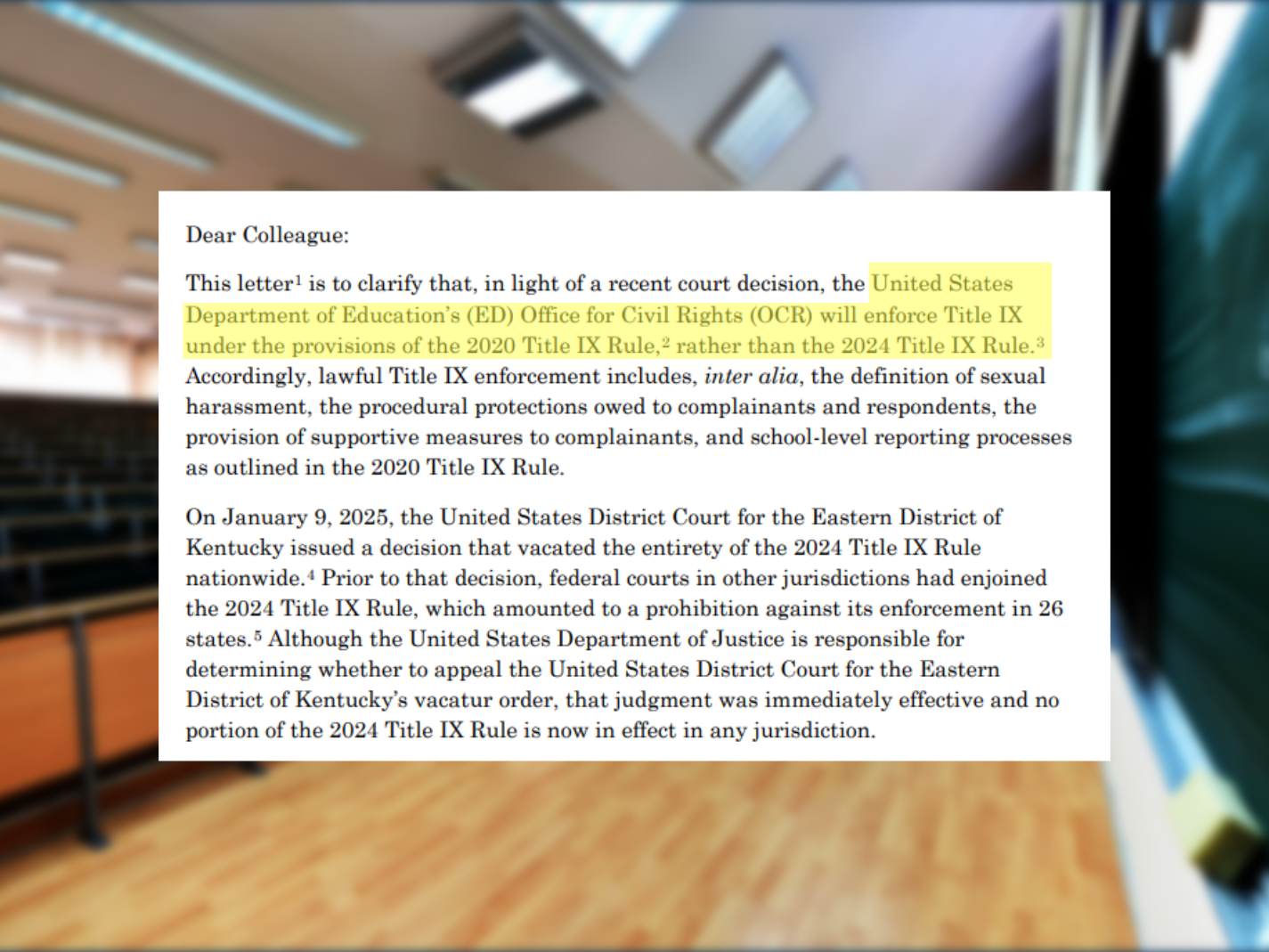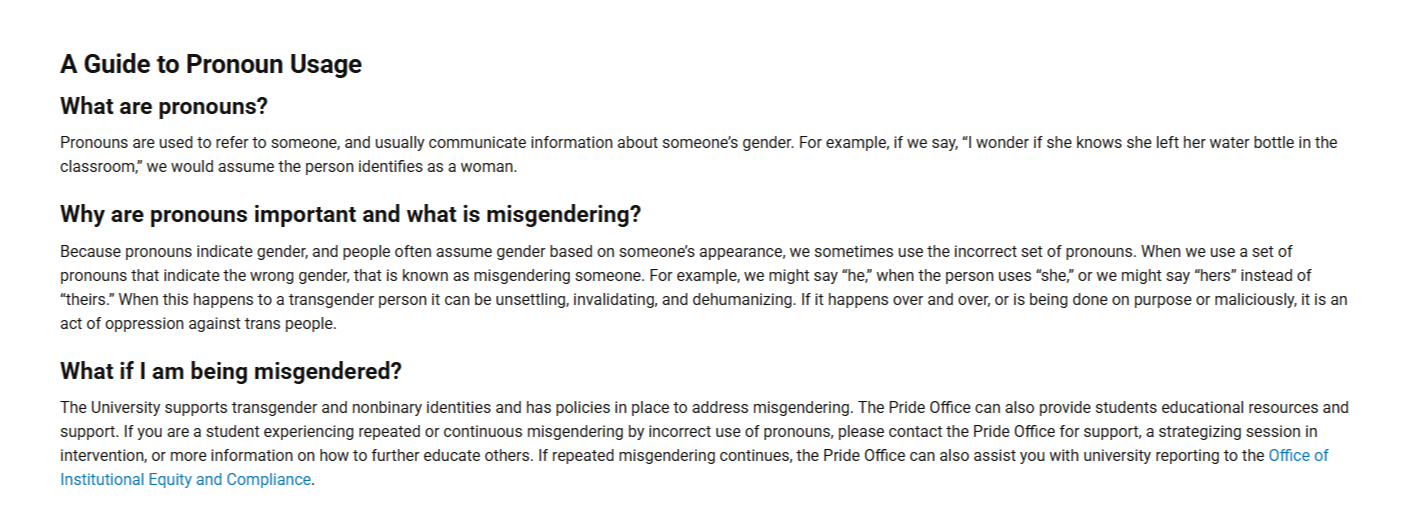
Initially enacted in 1972 to prohibit sex-based discrimination in federally funded educational institutions, Title IX aimed to ensure women’s equal participation in academia. But in the last few decades, each U.S. president has attempted to make amendments to the law.
In 2011, the Obama administration broadened its scope to include sexual harassment and assault, mandating that schools adjudicate such cases using a lower “preponderance of the evidence.” While intended to enhance accountability, this change raised serious due process concerns, with critics arguing it led to unfair disciplinary proceedings against accused students.
Obama’s updates predated the rapid rise of the #MeToo movement in the late 2010s—a movement that further contributed to a cultural shift that, in many cases, undermined the principle of “innocent until proven guilty.” While allegations of sexual misconduct should always be taken seriously, the principle of neutrality must not be abandoned. The law should not automatically favor the accused or the accuser—rather, the evidence should determine the outcome.
In his first term, Trump introduced reforms to restore due process in Title IX, aiming to balance protecting victims with preventing wrongful accusations. His changes included the right to cross-examine accusers, clearer definitions of sexual harassment, and requirements for schools to specify a standard of evidence and provide written decisions with rationale in Title IX cases.
Biden reversed these corrections upon taking office in 2021, reinstating Obama-era policies while advancing even more radical changes. His administration redefined Title IX to include gender identity as a protected category—a move emblematic of the adminstration’s commitment to “diversity, equity, and inclusion” (DEI)—leading to an outpouring of lawsuits. By expanding “sex discrimination” to cover self-identification, the Biden White House forced institutions to treat gender as a fluid spectrum, where a male could claim to be a woman and vice versa. This shift reshaped policies on athletics, restrooms, and faculty accommodations, mandating environments that affirm all gender identities.
Colleges and universities, which had long been pushing radical gender ideology, were emboldened to deepen its integration into campus life. Schools mandated the use of preferred pronouns, allowed biological males to identify as female to compete in women’s sports and access women’s spaces, and created biased reporting systems that silenced dissent. At the University of Colorado Boulder, for example, misgendering became a punishable offense, with students able to file complaints against those who didn’t comply. This institutional pressure forces students to either self-censor or face disciplinary consequences.

Screenshot: Center for Inclusion and Social Change, University of Colorado Boulder
Many universities have embraced a gender-neutral approach to education, encouraging professors to use inclusive language in the classroom as a key strategy for fostering diversity. The 2024 Title IX rule introduced mandatory training for employees to help them recognize and respond to sex-based discrimination, including harassment or exclusion based on gender identity. It’s likely that schools incorporated DEI practices, such as pronoun usage, into this training to ensure non-binary and trans students were not discriminated against.
Biden’s Title IX rule was ultimately struck down by a federal judge earlier this year. And on January 31, President Trump issued Executive Order 14168 (EO), “Defending Women From Gender Ideology Extremism and Restoring Biological Truth to the Federal Government,” with the Department of Education issuing a “Dear Colleague Letter” to announce it would enforce Title IX under the 2020 rule. While this change primarily affects public institutions, it is a critical step in restoring protections for women. Public colleges and universities that have long championed gender ideology will now be forced to recognize only two genders—male and female—or risk losing federal funding.
But will the threat of losing federal funds be enough to end the woke gender ideology madness?
It seems not to influence Maine Governor Janet Mills, who clashed with President Trump over policies allowing men to compete in girls’ sports at a National Governors Association meeting in February. Trump threatened to withhold federal funding unless Maine complied with his executive order banning transgender women from women’s teams. Governor Mills responded firmly, “See you in court.” With Trump’s return to office, it appears likely that Title IX’s original intent will be reinstated.
MUST WATCH: This is one of the most epic exchanges ever between Trump and the Governor of Maine pic.twitter.com/mqjTVBStZi
— Libs of TikTok (@libsoftiktok) February 21, 2025
President Trump’s efforts to restore Title IX protections are essential, but the cultural and institutional effects of gender ideology remain deeply embedded. For instance, the use of gendered pronouns has become commonplace in education, from course introductions to Zoom display names. And as demonstrated by Maine, many institutions will likely opt to disregard Trump’s Executive Order and continue to uphold these ideologies rather than comply. Asking these institutions to enforce policies that prevent men from competing in women’s sports or using women’s bathrooms is like asking a river not to flow downstream—it’s simply not going to happen.
Given this, I remain skeptical that Trump’s changes will stick.
Image: .shock; Asset ID#: 373594809 on Adobe & and screenshot of the Title IX Enforcement Directive DCL from the U.S. Department of Education on ed.gov.

There is more than General Mills being her lovable self — and her male chief of staff (married to the male majority leader) behaving even worse.
About 500 people showed up on Saturday to protest Mills — that hasn’t happened since, well probably since 1880. This is Maine, stuff like this doesn’t happen.
https://www.themainewire.com/2025/03/maine-becomes-ground-zero-for-trump-era-fight-over-gender-identity/
The real question here is FAPE — and the mandate to provide athletic opportunity for boys not good enough to qualify for the existing male teams. How that plays out will be interesting…